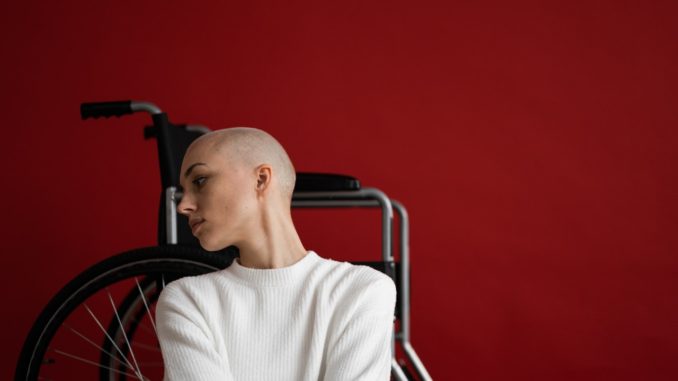
The gall bladder may develop tumors that are either benign or malignant. Gall bladder cancer is considered fairly uncommon; and mostly occurs in the elderly. Women are more liable to develop gall bladder cancer, compared to men. Gallbladder Cancer Symptoms
Invariably, cancer starts in the innermost layer of the wall of the organ. The cause is not very clear; research says, mutation of the DNA of the cells results in malignancy.
Gall bladder Cancer Symptoms
The following are the clinically seen gall bladder cancer symptoms:
- Jaundice is a very common symptom; the skin shows yellow discoloration, urine turns dark yellow and stools become pale. The patient also complains of itching.
- Nausea and vomiting are principal gall bladder cancer symptoms and occur because of an obstruction of the bile duct, which impedes the flow of bile. A blockage causes the gall bladder to enlarge, given that, bile accumulates in the organ.
- Pain in the abdomen, usually, the right side occurs.
- Loss of appetite and weight loss are common gall bladder symptoms too.
- Fatigue and prostration are marked.
- The patient develops excessive bloating and flatulence as well
- Occasionally, fever may be one of the gall bladder cancer symptoms.
Diagnosing Gall Bladder Cancer Symptoms
Blood tests, ultrasound, CT scan, MRI, trans-abdominal ultrasound, MR cholangiopancreatography, and liver function tests are carried out for the diagnosis.
Gallbladder Cancer Symptoms Early diagnosis of cancer influences the course of treatment and considerably improves the prognosis.
Gall Bladder Cancer Treatment
The treatment depends upon the stage of cancer, the health status and age of the patient, and his preferences. The principal objective of the treatment regimen is to remove the organ; also, it is important to check a spread to the neighboring areas.
Surgery for Early Stage Gall Bladder Cancer
- Cancer that is limited to the organ is treated with cholecystectomy or removal of the gall bladder.
- Sometimes, along with the gall bladder, some part of the liver is excised as well.
- Research says that, opting for chemotherapy, radiation therapy, or a combination of both, after a successful surgery helps ward off a recurrence. Thus, surgeons recommend patients to go in for these.
Treatments for Late-Stage Gall Bladder Cancer
When the cancer gall has extended beyond the organ, surgery alone can not bring about the complete management. For that reason, surgeons use treatments that may assuage the symptoms of cancer effectively. Other treatment options are:
- Chemotherapy: comprising of drug treatment that destroys the malignant cells.
- Radiation therapy: it makes use of high-powered beams of energy, like X-rays, to annihilate the tumor cells.
- Procedures may be conducted to open up blockages of the bile duct. Advanced cases of cancer cause blocks in the bile duct, producing a host of complications. To manage such a case, the surgeon puts a stent / a hollow metal tube in the duct to hold it open or may redirect the bile duct around the block: this procedure is called a biliary bypass.


Your point of view caught my eye and was very interesting. Thanks. I have a question for you.